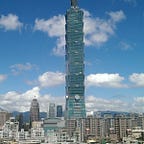HILD 12 — Discussion 7
I believe that the way Okinawan women resisted U.S. military occupation was caused by a blur in traditional gender roles and solidarity between women during the Battle of Okinawa. As the situation deteriorated on Okinawa, women began to assume traditional roles, such as becoming laborers and farmers, that had held by men to supplement the loss of men during the World War Two (Matsumura, Lecture 6). While — as we will see later this synthesis of gender roles did not completely break down the traditional gender dynamic of Okinawan communities, the hardships experienced by Okinawan women in taking on both male and female roles afforded a newfound identity as the sole provider of the household. During the Battle of Okinawa, Okinawan women often helped each other by sharing food and shelter with other women who could not evacuate to safety, and many women attributed their survival and the survival of their family members to this experience (Matsumura, Lecture 6). The battle also revealed that existing gender expectations and roles remained entrenched in Okinawan society despite the active conflict. For example, Nakamura Kamado, who was ostracized by the her community within the caves of Okinawa, was given differential treatment because she lacked a male companion which could fulfill the “mutual work obligations” (Matsumura, Lecture 6). Okinawans also began to “replicated” similar gender dynamics in post-war detention centers (Matsumura, Lecture 6). Finally, as the occupying power wanted Okinawa to “resume normal operations” soon as possible, it also sought to re-impose a patriarchal society and take agency away from women (Matsumura 153). Arguably, it was the communal relationship developed out of mutual-aid between women, and the solidification of rigid gender roles that sought to take power away from women, that created a new identity or made Okinawan women sympathize with organizing protest and resistance around their gender identities.
While gender-based struggles were an existing trauma that was inherited by the U.S. military occupation, concerns over property and arable land seized by the occupation became a new source of tension experienced by Okinawan women. Okinawan women came to associate the land with their identity because agricultural work has been integral to their livelihood (Matsumura, Lecture 6). As property ownership, especially that surrounding prime agricultural land, was being reorganized and taken by the military occupation, Okinawan women saw this gesture as a direct threat over concerns of their identity and dire need to survive in post-war devastation.
